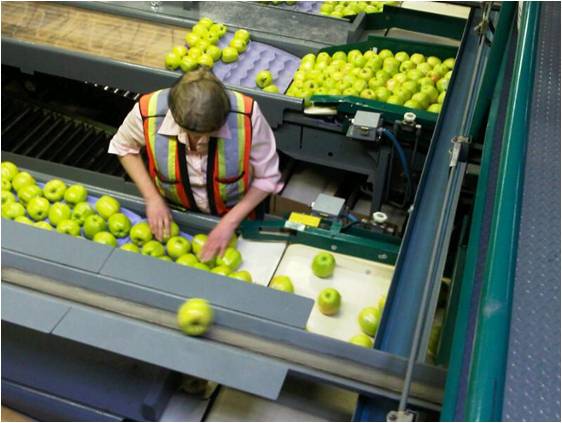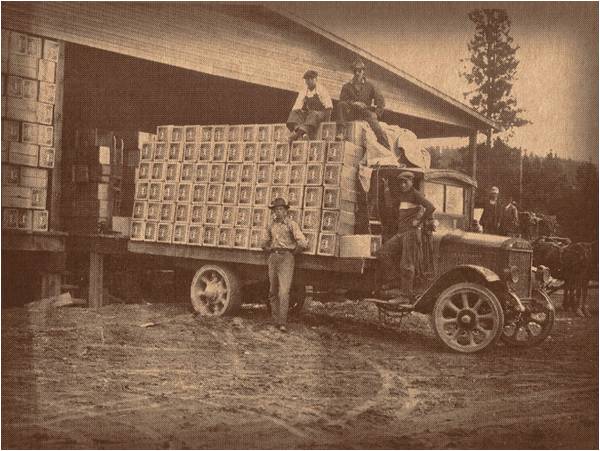
To deliver a service effectively, you have to know who you’re serving. That’s why we collect your feedback through surveys, web analytics and interviews.
During our in-person and virtual travels, we learn a lot about how local businesses use our online traveller information system. For the Okanagan’s BC Tree Fruits, for example, DriveBC plays an integral part in getting juicy peaches, scrumptious cherries, bursting blueberries and crunchy apples into the hands of people around British Columbia and across the country.
Transporting a perishable product like fruit requires speed and efficiency. Delays can mean the difference between a fully stocked grocery store and a truckload of compost fodder. That’s why BC Tree Fruits remains heavily involved during the journey from packing house to grocer.
BC Tree Fruits Transportation Coordinator Cory Lyn Graham works with transport companies to schedule shipments from the Okanagan to Vancouver and across Canada. Having timely road condition updates available through DriveBC allows her to plan detours and notify customers of route changes.
“I monitor the [DriveBC] webcams all day, every day,” said Graham. “Especially around summits.”
The fruit, particularly peaches and cherries, is susceptible to temperature swings, so refrigerated trailers (“reefers”) are needed to keep it all cool. But not too cool – the fruit can also be put at risk when outside temperatures drop well below freezing because the product closest to the walls can sustain frost damage or even freeze completely. No wonder Graham is extra concerned about trucks making it over summits, which can have significantly lower temperatures, without delay.

Graham recalls a shipment of apples and pears that was destined for Calgary during winter. Usually, the route would follow Highway 1, but DriveBC reported the highway was closed in the Rogers Pass area due to an avalanche. Graham was able to reroute the truck to Highway 3 before it left the Okanagan, meaning the fruit stayed fresh for their arrival in Alberta.
“If we hadn’t re-routed this particular truck, it would have ended up stuck behind the closure for almost two days in this case,” said Graham.
“Given the time of year and the weather conditions, if the truck had gotten stuck behind the closure there would be a chance of frozen fruit, not to mention late arrival to the customer’s warehouse, which then leads to product shortages at the store level.”
Does your business count on getting people or products to their destination on time? If so, we hope you take advantage of DriveBC. Nobody likes a rotten apple.
Join the discussion